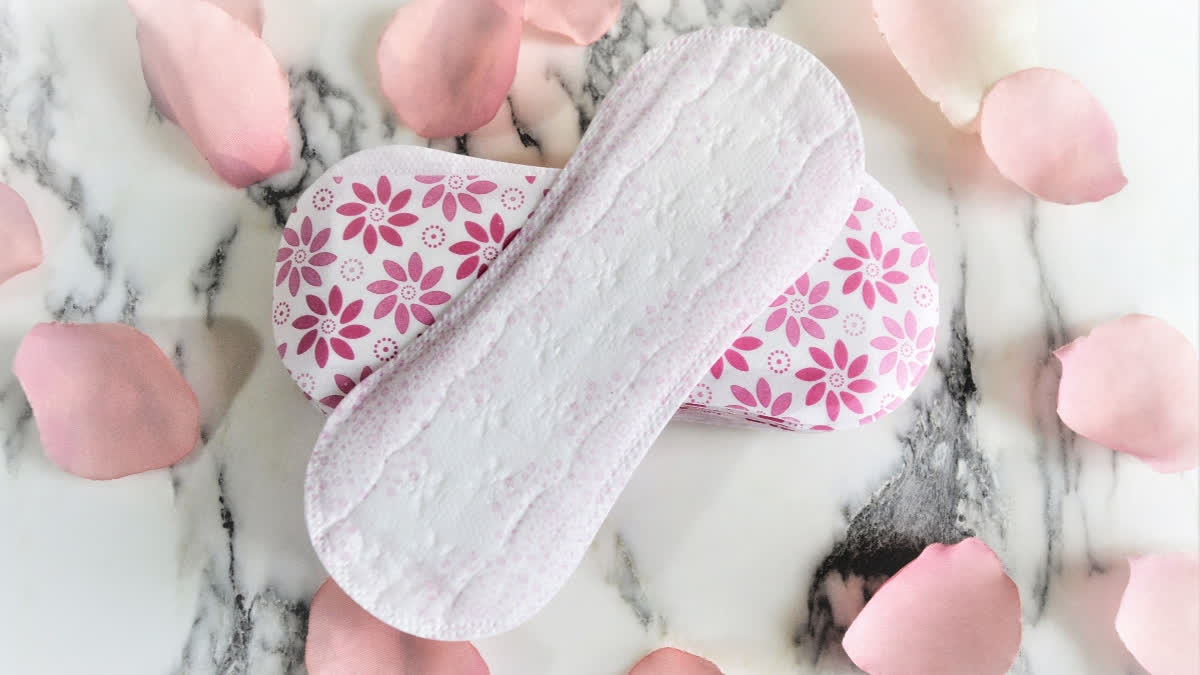A regular menstrual cycle is a vital sign of overall health for women. However, many factors such as stress, hormonal imbalances, poor diet, and underlying medical conditions can disrupt it. While medical advice is essential for persistent issues, a balanced diet rich in specific nutrients can play a significant role in regulating your menstrual cycle. Incorporating nutrient-dense options into your diet not only supports a regular cycle but also improves your overall well-being. Start small, stay consistent, and listen to your body as you make these changes into your routine. Here's a complete guide by dietician Mamta Soni to the foods that can help you solve your period issue to a lot extent.
Iron-Rich Foods
Heavy or irregular periods can lead to iron deficiency, which affects your energy levels and overall health. Foods rich in iron help replenish your body's stores and support healthy blood production.
Representational Image (Freepik) What to eat:
- Leafy greens like spinach and kale
- Lentils and beans
- Red meat (in moderation)
- Fortified cereals
- Pumpkin seeds
Healthy Fats
Healthy fats support hormonal balance, which is crucial for a regular cycle. Omega-3 fatty acids, in particular, have anti-inflammatory properties that may reduce menstrual discomfort.
What to eat:
- Avocados
- Fatty fish like salmon, mackerel, and sardines
- Chia seeds and flaxseeds
- Walnuts
- Olive oil
Complex Carbohydrates
Complex carbs stabilize blood sugar levels, which can influence insulin and other hormones linked to your menstrual cycle.
Representational Image (Freepik) What to eat:
- Whole grains like quinoa, oats, and brown rice
- Sweet potatoes
- Legumes like chickpeas and lentils
- Vegetables like broccoli and carrots
Vitamin C-Rich Foods
Vitamin C plays a role in hormone production and iron absorption, which are both crucial for menstrual health.
Representational Image (Freepik) What to eat:
- Citrus fruits like oranges, lemons, and grapefruits
- Strawberries
- Bell peppers
- Papaya
- Kiwi
Magnesium-Rich Foods
Magnesium helps reduce stress, which is a common factor in irregular periods. It also supports muscle relaxation and can ease menstrual cramps.
Representational Image (Freepik) What to eat:
- Dark chocolate (opt for 70% cacao or higher)
- Almonds, cashews, and peanuts
- Bananas
- Spinach
- Pumpkin seeds
Foods High in Zinc
Representational Image (Freepik) Zinc regulates hormone levels and supports the functioning of the reproductive system.
What to eat:
- Shellfish like oysters
- Chickpeas
- Nuts and seeds (particularly sesame and pumpkin seeds)
- Eggs
- Dairy products
Herbal Teas
Herbal teas can help regulate hormones and reduce menstrual discomfort.
Representational Image (Freepik) What to drink:
- Ginger tea: Eases cramps and inflammation.
- Cinnamon tea: Regulates blood sugar levels and may help with irregular cycles.
- Chamomile tea: Reduces stress and promotes relaxation.
Probiotic Foods
A healthy gut microbiome supports hormone regulation, which is essential for a stable cycle.
Representational Image (Freepik) What to eat:
Hydrating Foods
Staying hydrated reduces bloating and supports overall metabolic function, which can influence your menstrual cycle.
What to eat/drink:
Representational Image (Freepik) - Watermelon
- Cucumbers
- Celery
- Coconut water
- Herbal teas
Avoid These Foods
While adding beneficial foods, Dietician Soni says it’s equally important to limit certain items that can disrupt hormonal balance:
- Processed and sugary foods: Can cause insulin spikes and inflammation.
- Excess caffeine: May exacerbate menstrual pain and disrupt sleep.
- Alcohol: Affects liver function, which is key to hormone regulation.
Lifestyle Tips for Better Results
- Pairing a nutrient-rich diet with these lifestyle changes can enhance results:
- Exercise regularly but avoid overexertion.
- Manage stress through mindfulness, yoga, or meditation.
- Get enough sleep to support hormone regulation.
When to See a Doctor
If dietary changes and lifestyle adjustments don’t improve your menstrual cycle over time, consult a healthcare professional. Irregular cycles can sometimes signal underlying medical conditions like polycystic ovary syndrome (PCOS) or thyroid issues that require specialized care.
Read More:
- Explained: What Is L-Glutamine And How Its Deficiency Affects Your Brain And Body
- Indulge Guilt Free! Why You Should Eat Dark Chocolate Every Week: 5 Health Benefits You Didn't Know
- Breakfast Is The Most Important Meal For Your Heart In The Day, Finds A New Study
